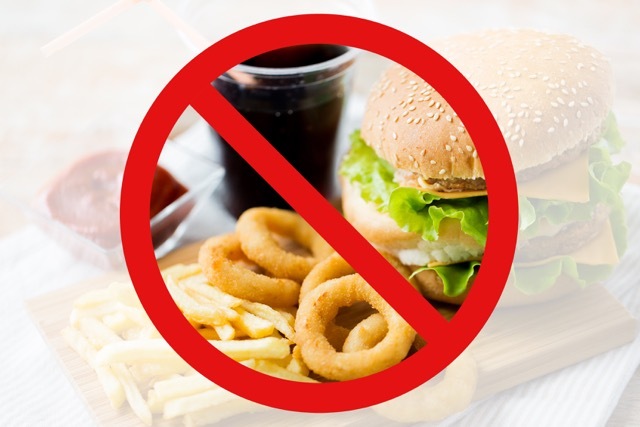
Luton Council takes action against childhood obesity by banning unhealthy food ads on municipal property
Luton Council has made a significant decision to combat the growing concern of childhood obesity in the town by implementing a ban on advertising for unhealthy food items on most of its council-owned property. As part of this determined initiative, advertisements featuring food products high in fat, salt, and sugar will no longer be permitted to be displayed on billboards, lampposts, screens, or roundabouts within the town’s jurisdiction.
This move, according to the council, aims to “protect children and adults” from the influence of marketing that promotes unhealthy eating habits. The situation has become particularly alarming in Luton, where childhood obesity rates have exceeded national levels. The latest figures from the National Child Measurement Programme (NCMP) revealed that 11.4% of reception age children in Luton (ages four to five) were classified as having obesity, compared to the national rate of 10.1%. Similarly, obesity among children aged 10 to 11 (Year 6) in Luton stood at 29.2%, noticeably higher than the national rate of 23.4%.
Labour councillor Khtija Malik, who holds the portfolio for public health, declared the ban as a “start” in the town’s efforts to decrease its “high rates of obesity among young children.” Ms. Malik stressed the importance of fostering healthy eating habits early in life, acknowledging the considerable impact advertising has on shaping people’s food choices.
This ban, although extensive, will not encompass all advertising locations within the town. Unhealthy food adverts may continue to be seen on bus shelters until at least 2027, as the council’s current advertising contract for these spaces extends to that year. However, Ms. Malik reassured that the council, having “control of our assets,” would exercise control over “what is advertised” in areas under its jurisdiction.
The move by Luton Council has not only demonstrated a proactive approach to a pressing public health issue but has also been met with support from advocacy groups. Fran Bernhardt, the children’s food campaign coordinator at Sustain, a group dedicated to better food and farming, lauded the council’s efforts, stating, “Luton Council has stood up to the food and drinks industry on behalf of all their residents.” She further emphasised the importance of the decision, pointing out that those residing in the most deprived areas are the ones most affected by unhealthy food advertising and are consequently most at risk from diet-related diseases.
The decision by Luton Council signifies an important step in recognising and addressing the complex factors that contribute to childhood obesity. By limiting the exposure to advertising that encourages unhealthy food choices, the council is actively working to create an environment that supports healthier lifestyle decisions. This ban is a notable example of local governance taking decisive action to influence public behaviour and health, reflecting a growing awareness of the pivotal role advertising plays in shaping dietary habits and preferences. It serves as a landmark measure that could potentially inspire similar initiatives in other towns and cities, contributing to a broader societal shift towards prioritising public health.




[…] response to its high obesity rate, Luton has recently implemented a ban on advertising unhealthy food on council-owned properties. The rise in obesity-related admissions is partly attributed to increased medical awareness of the […]